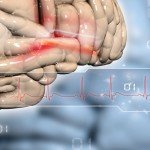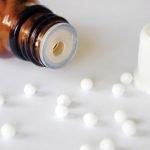Male Sexual Health: An Ayurvedic Perspective
Virender Sodhi, MD (Ayurved), ND
Viagra, Levitra, and Cialis have become household names. While fanfare about the effects of these drugs is compelling, there are major side effects associated with each of these medications. Television reports, magazines, and newspapers are all filled with news of the drugs’ purported ability to improve male sexual performance and virility. However, public discussion about the drugs’ seemingly miraculous effects ignores a deeper understanding of male sexuality and the reasons for impotency and sterility.
Thirty million men in the U.S. suffer with impotence or erectile dysfunction (ED). Most often, this is the result of some underlying physical condition. Ten years ago, 85% of the cases of male erectile dysfunction were ascribed to emotional causes. But in reality, impotency has psychological origins in less than 15% of reported cases. There are many medical conditions that can cause impotence, including cardiovascular illness, diabetes, neurological disorders and hormonal imbalance. In addition, many external elements and activities such as exercise, drug use, allergies and even nutritional status have been linked to sexual dysfunction. With some sensible considerations to psychological health, nutrition and medication use, most sexual dysfunction can be improved.
Vascular diseases such as atherosclerosis, heart disease, high blood pressure and high cholesterol are among the leaders in causes of erectile dysfunction. Just as restricted blood flow to the heart can cause a heart attack or a stroke, poor blood flow to the penis can result in impotence.
Diabetes is another common cause of male sexual dysfunction. About 50% of all diabetic patients age 55 or older are afflicted to some degree. Diabetes can damage vasculature, as well as affect the brain’s ability to transmit impulses to different areas of the body. Neurological impairment resulting from injuries to the spinal cord, brain, prostate, or groin area can interrupt nerve impulses to the penis, as can neurological diseases such as Alzheimer’s or Parkinson’s. In addition, multiple sclerosis has also been shown to lead to impotence. Recent studies have also linked some forms of exercise, such as cycling, and other pelvic injuries to male erectile dysfunction. Surgical procedures in the pelvic area, especially to the prostate gland, bladder, rectum or colon, can cause impotence as well, as blood or nerve pathways are damaged.
Prescription drug use is another common cause of sexual dysfunction. There are approximately 200 prescription drugs known to cause erectile dysfunction. The most common are diuretics, blood pressure medications, tranquilizers, anti-depressants, sedatives, and psychiatric drugs. Long-term use of alcohol, nicotine, cocaine and marijuana can also lead to impotency. Other causes of impotence and ED are hormonal imbalances and Peyronie’s disease, however these are less common.
Psychological causes of impotence, as stated earlier, represent around 15% of all cases of male impotence. These typically include psychological/emotional problems such as depression, low self-esteem, anger, fear of failure, and fear of contracting sexually transmitted diseases. Erectile dysfunction has been found to be associated with age. A prevalence of about 5% is observed at age 40, increasing to 25% at age 65. One-third of older men receiving medical care at the Dept. of Veterans’ Affairs admitted to having erection problems. According to the National Ambulatory Medical Care Survey, there were about 525,000 physician office visits for erectile dysfunction in 1985, while a survey by the National Hospital Discharge that same year estimated that the problem accounted for more than 30,000 hospital admissions nationwide. According to one report, erection failure was the leading complaint of males receiving sex therapy.
Furthermore, there is now substantial evidence that celiac sprue is associated with infertility both in men and women. In women it can also lead to delayed menarche, amenorrhea, early menopause, recurrent abortions, and a reduced pregnancy rate. In men it can cause hypogonadism, immature secondary sex characteristics and reduced semen quality. The real mechanism by which celiac sprue produces these changes is unclear, but factors such as malnutrition and nutritional deficiencies have been implicated. In my clinical observation, most of the male patients with celiac diagnosis have also shown low testosterone levels and some level of infertility.1
Erection as a Physiological Response
The male erectile response is a vascular event, carried out by a complex interplay between vascular and neurological agents. The process is initiated by the central nervous system, which integrates psychogenic stimuli such as perception, desire and touch, as well as controlling sympathetic and parasympathetic enervation of the penis. Sensory stimuli from the penis initiate a reflex that may cause erection, and under proper circumstances may help to maintain it during sexual intercourse. Parasympathetic input facilitates erections by relaxing the smooth muscle and dilating the arteries of the penis. This action increases blood flow to the penis, which subsequently enlarges. Acetylcholine, a hormone released by parasympathetic nerves, acts on endothelial cells to relax the smooth muscles of the male sex organ. Nitric oxide, released by the endothelial cells, is thought to be an important factor in an erection. This is, however, a small part of the whole picture. Many other mechanisms involved in the male sexual response are still uncertain. Drugs, which simply increase the endothelial nitric oxide, like Viagra, may not be able to give us the full answers we need to correct underlying mechanisms of sexual dysfunction.
Evaluation
The appropriate evaluation of men with erectile dysfunction includes a detailed medical and sexual history, including sexual practices and techniques. A physical exam, psychological evaluation, basic lab report and substantive sexual history, including expectations and motivations, are also obtained from the patient. A thorough questionnaire may be helpful in finding out about sexual difficulties. Detailed evaluation of the vascular and neurological systems, as well as knowledge of past pelvic surgery, radiation therapy, pelvic trauma, inflammation of the prostate or voiding dysfunction, is important in cases of impotence. Psychotherapy and behavioral therapy can be very useful to treat patients with erectile dysfunction if the cause is not organic. This can also be used as an adjunct therapy with other treatments.
How can your patients have robust sexual health?
Ayurvedic medicine believes sexual activity to be very sacred. It considers that the act of sex is much more than the physical steps; it is passing your precious genetic information for the next generation and creating your offspring. For the survival of future generations, it is very important to pass the precise genetic material, so to ensure the health of the future. The pleasure part of sexual activity is also important for our relationships, trust building and bringing completion to our sexual partner. Following is the holistic Ayurvedic approach to helping your patients build robust sexual health.
Lead them to a healthy life style: Male subjects in the MMAS (Massachusetts Male Aging Study) who were treated for heart disease or hypertension, were up to four times more likely to become impotent than those without these conditions. In another study, low levels of HDL were linked to erectile dysfunction. A moderate amount of exercise done on a regular basis has shown to increase testosterone and DHEA levels, which will have a positive impact on sexual health.2
Ayurveda seeks to restore balance to the body’s three doshas- Vata, Pitta and Kapha. It is through this balance that good health is achieved. These principles hold true for sexual function. For example, Kapha types in general have more sexual energy than Vata types. Therefore, in order to balance Kapha, and promote sexual energy, Ayurveda recommends taking sweet, heavier foods, such as ghee, milk, dates and figs. In fact, milk heated with dates is a traditional restorative following sexual intercourse. Ayurveda recommends organic butter or ghee as an aphrodisiac. One teaspoon of ghee or organic butter can be used safely on a daily basis to stimulate sexual health. In my clinical experience, ghee has shown to increase HDL; as stated earlier, low HDL has also been linked to impotence. In India, flax seed combined with nuts and seeds are used traditionally in winter as an aphrodisiac. Replacing coffee with green tea, doing regular exercise, yoga, breathing exercises and meditation all help to lower blood pressure, which can lead to normal sexual function.
Control Anger: Anger is the enemy of sexual activity. According to the MMAS published in the American Journal of Epidemiology in September 2000, anger suppression is linked to erectile dysfunction. It was found that while psychogenic stimuli normally produce an erection in emotionally healthy men, the nervous system can also impede an erection by inhibiting parasympathetic stimulation to blood vessels that provide blood to the penis. Calming breathing exercises are very beneficial for reducing intense emotion, such as anger, and increasing sexual health. An effective breathing exercise to give patients is the Cycle of Four breathing. Inhale for four counts, hold the breath four counts and exhale four counts; repeat three times. Patients can do this pattern four times per day to help decrease anger. Counseling or cognitive behavior referral may also be necessary if the problem is chronic or entrenched.
Help your patients quit smoking: Smoking not only damages the lungs, but also damages sexual abilities. In addition to being a major risk factor for heart disease and lung cancer, smoking also interferes with circulation of genitalia. Cadmium, a metallic element that is found in cigarettes, has been found to be directly detrimental to sperm health. Talking to your patients about smoking cessation would be the first step to increasing sexual health. Programs like the one found at www.smoking-cessation.org have information and support to help your patients get on the right track to quitting smoking and to better health.
Keep their prostate healthy: The prostate is an essential part of the male sexual system, acting as a reservoir for secretions. Keeping your patients’ prostates healthy will go a long way towards increasing their sexual health. Prostate cancer is a preventable disease and can often be avoided with distinct dietary changes. Eating fruits and vegetables that are rich in flavonoids will help to prevent prostate cancer. Adding tomatoes and soy products in foods 2-3 times per week can increase health and aid in prostate function. In addition, herbs such as turmeric can be very helpful in preventing prostate cancer.
There are many Ayurvedic treatments proven to work well with prostate cancer. When prostate cancer patients were given curcumin 500 mg, three times per day, they showed a faster decrease in overall PSA levels. Shilajit, a mineral pitch oozing out of Himalayan rocks, has been shown to increase urine flow and reduce the size of the prostate in a Russian study.3 It has been my clinical experience that this product works very well with other conditions of the prostate, such as benign prostatic hypertrophy (BPH).
While playing, consider safety first: Avoid sports that can lead to direct injury to the genitals. In a study presented by Dr. Irwin Goldstein (co-author of MMAS), impotence was found at a rate of 4% in bikers who cycled more than 10 hours per week. While cycling provides an excellent aerobic workout, the constant pressure of the bicycle saddle can constrict the perineal contents. Over time the compression can lead to vascular constriction and sexual dysfunction. Buying a bike seat specific for comfort of the genitals is essential for those cycling over 10 hours per week.
Check your patient’s medications: Several medications have been shown to decrease blood flow to the genitalia and cause impotence. About a quarter of all cases of impotence can be attributed to medications. Furthermore, many drugs pose a risk for erectile dysfunction. Some authorities go so far as to say that nearly every drug, prescription or nonprescription, can be a cause of temporary erectile dysfunction.
Among the drugs that are common causes of impotence are the following:
- Chemotherapeutic agents
- Diuretics and beta-blockers
- Anti-anxiety drugs, anti-psychotic drugs and anti-depressants, especially selective serotonin reuptake inhibitors (SSRIs)
- Anti-androgens and gonadotropin-releasing hormone agonists
Drugs that occasionally cause impotence include:
- Older anti-ulcer medications (Cimetidine)
- Anti-cholinergic drugs (including some antihistamines)
- Anti-nausea agents, particularly metoclopramide (Reglan)
- Anti-fungal drugs (Ketoconazole, in particular)
Use it or lose it: Sexual activity is like an exercise. If you try to jog, run or bike without training, it is going to increase muscle pain and fatigue. Longer abstinence from sexual activity will also create more sexual dysfunction. Ayurveda recommends different frequencies for different ages, and as you grow older you are advised to decrease sexual activity.
Ayurvedic Herbs
Ayurvedic medicine has a full branch dedicated to rejuvenation and virilification. Several Ayurvedic herbs are useful in cases of male impotency or sterility. These include: Withania somnifera (ashwagandha), Tribulus terrestris (puncture vine), Mucuna pruriens (velvetbean), Crocus sativus (saffron), Bacopa monnieri, Centella asiatica (gotu kola) and Shilajit, as well as many others. Ayurveda considers each one to be a potent aphrodisiac, and an all-purpose tonic to the male reproductive system.
In a double blind clinical trial, Ashwagandha was tested in a group of 101 healthy males, 50-59 years old, at a dosage of 3 grams daily for one year. The Sanskrit “Ashwa” means “horse”, implying Ashwagandha’s strengthening effects. A significant improvement in hemoglobin, red blood cell count, hair melanin, and seated stature was observed. In addition to erythrocyte sedimentation rate decreasing significantly, there was a 71.4% reported improvement in sexual performance.4 In another recent trial, Tribulus, a noted diuretic has been shown to actually raise testosterone levels.5
As well, seeds from the Mucuna pruriens plant (called kapikacchu in Sanskrit, meaning “covered turtle” because its soft, downy outer coating resembles a turtle’s shell) are described in traditional Ayurvedic medical texts as aphrodisiac and tonifying to the sex organs. Another herb, saffron, used most often as a spice in food, is an aphrodisiac and has traditionally been used to treat impotency. Bacopa monnieri and Centella asiatica have also customarily been used as nervines to increase intellect, blood circulation and sexual function.
A time-honored Ayurvedic formula containing these and other herbs works on both the psychological and physical levels to revitalize and restore male sexual energy. For example, a 15-year-old male was seen in this clinic with breast enlargement and failure to develop secondary sexual characters. His testosterone serum levels were low at approximately 70 ng/dL. If left untreated, this patient could have suffered from sexual dysfunction his entire life. After a thorough medical and sexual history intake he was evaluated further with physical exam and necessary laboratory tests. Together with advice on dietary needs, he was put on a combination of the above herbs. In just three months this patient was re-evaluated and found to have a testosterone level of 320 ng/dL.
In my clinic I have had many experiences dealing with this difficult matter. However, one case comes to mind that I believe all will appreciate for its humor. A 55-year-old male came to the office to see me; he wanted to boost his sexual health, as he was going to get married. I put him on the Ayurvedic herbal combinations and after two months he came back to the clinic at which time I asked how everything went. He said,” This did not work.” I asked, “What happened?” He said, “I was able to make love only four times on the first night.”
References:
1. Dig Dis. 1994 May-Jun;12(3):186-90.
2. Eur J Appl Physiol. 2005 Aug;94(5-6):505-13. Epub 2005 Jun 8.
3. Lik Sprava. 1997 Nov-Dec;(6):129-32.
4. Phytotherapy Press; 1996:137-141.
5. Life Sci. 2002 Aug 9;71(12):1385-96.
 Virender Sodhi, MD (Ayurveda), ND was the first Ayurvedic and Naturopathic physician in the United States. He received his MD in Ayurveda in India in 1980, and then in 1986 he came to the West to share Ayurveda as part of a cultural exchange program. In 1988, he graduated from Bastyr University with a degree in Naturopathic Medicine. Dr. Sodhi treats thousands of patients from the U.S. and around the world. He lectures extensively throughout the U.S. and other countries including New Zealand and Australia, as well as conducting classes and seminars in Ayurvedic Medicine. He also writes regularly about the latest Ayurvedic Science updates and has been featured in the [i]Townsend Letter[i]. Recently he was appointed as an official advisor of Ayurveda to the government of Australia.
Virender Sodhi, MD (Ayurveda), ND was the first Ayurvedic and Naturopathic physician in the United States. He received his MD in Ayurveda in India in 1980, and then in 1986 he came to the West to share Ayurveda as part of a cultural exchange program. In 1988, he graduated from Bastyr University with a degree in Naturopathic Medicine. Dr. Sodhi treats thousands of patients from the U.S. and around the world. He lectures extensively throughout the U.S. and other countries including New Zealand and Australia, as well as conducting classes and seminars in Ayurvedic Medicine. He also writes regularly about the latest Ayurvedic Science updates and has been featured in the [i]Townsend Letter[i]. Recently he was appointed as an official advisor of Ayurveda to the government of Australia.









